Not everyone knows that the names of many streets across the country are now named after the People's Armed Forces Heroes who heroically sacrificed their lives to protect the northern border...
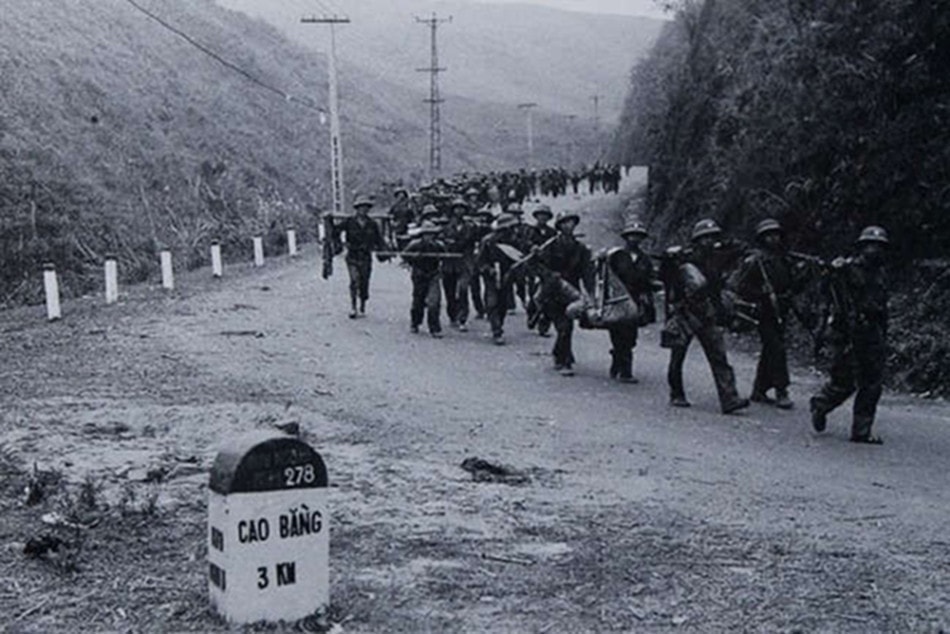
There are streets named after heroes…
A famous writer, while walking on the streets of Lao Cai town, suddenly discovered a rather "strange" street name - Pham Xuan Huan street.
Heroic martyr Pham Xuan Huan was born in 1948 in Viet Hoa commune, Cam Giang district, now Cam Thuong ward, Hai Duong city. In April 1968, he broke up with his wife, Mrs. Dang (who was his girlfriend at the time), and enlisted to fight in B. He fought very bravely on the southern battlefield and the Lao battlefield during the resistance war against the US to save the country. Bombs and hardships could not do anything to that brave soldier.
It was not until 1977 that he completed his mission in Laos and returned to Vietnam. His brief reunion with Mrs. Dang bore fruit for the couple, a daughter named Thu Ha. Then he continued to join his comrades to the northern border to protect the Fatherland. The last time he saw his wife and daughter was when Ha was only 8 months old.
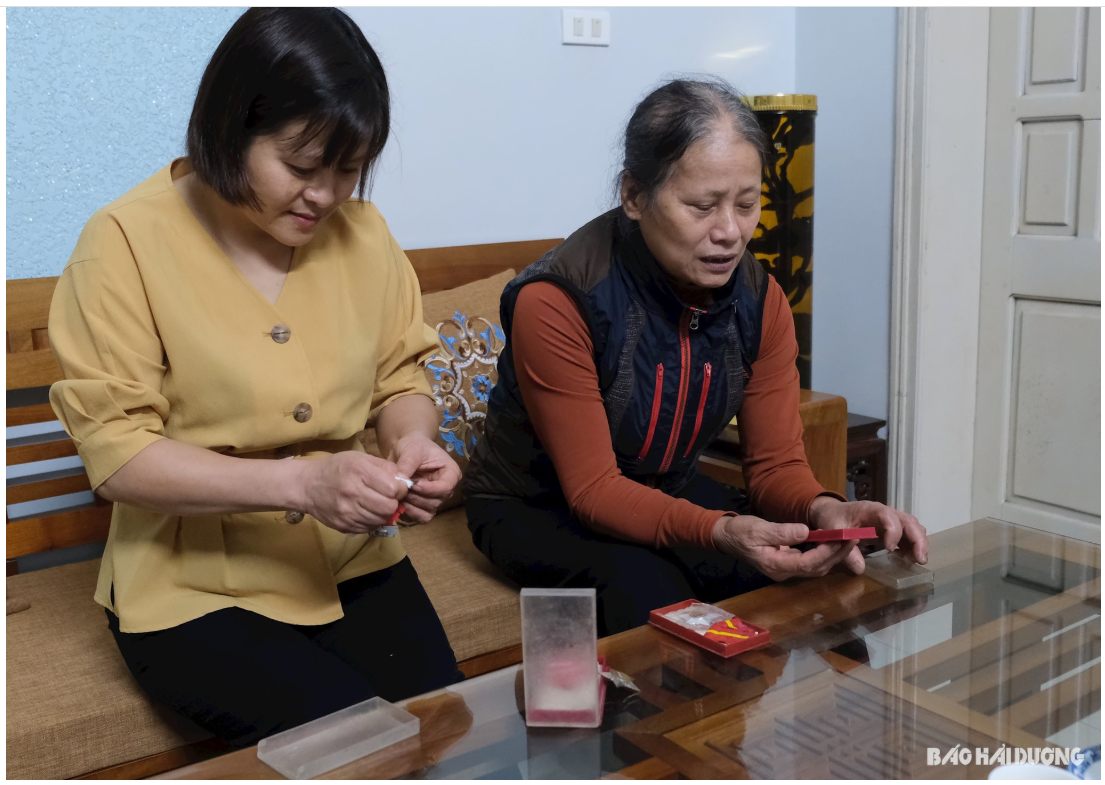
On February 28, 1979, at the northern border, Lieutenant Pham Xuan Huan sacrificed his life while he was the Captain of Company 10, Battalion 6, Regiment 148, Division 316, Military Region 2. Through fierce battles, Pham Xuan Huan destroyed 45 enemies and heroically sacrificed his life. On December 20, 1979, he was posthumously awarded the title of Hero of the People's Armed Forces by the President of the Socialist Republic of Vietnam. Her husband sacrificed his life when he was only 25 years old, Mrs. Dang has remained single until now to worship her husband and raise her children.
Hong Ha Ward, Ha Long City, Quang Ninh Province, has a small street named Do Chu Bi. That hero was not born in Quang Ninh, but he sacrificed himself in the early days of the year of the Goat 1979 in Hoanh Mo, Binh Lieu, Quang Ninh. Hero of the People's Armed Forces Do Chu Bi was only 28 years old at that time.
His hometown is Nam Sach, Hai Duong province, his family had two older brothers who went to B, so Bi was not required to join the army. However, in 1970, he still wrote a volunteer application to go to the South to fight. After the liberation day, due to his excellent fighting achievements in the Southern battlefield, he was sent to train in the People's Armed Police (now the Border Guard) and was transferred to Hoanh Mo as Deputy Captain of Company 6, Quang Ninh Armed Police Station 207 (now Hoanh Mo Border Guard Station) with the rank of second lieutenant.
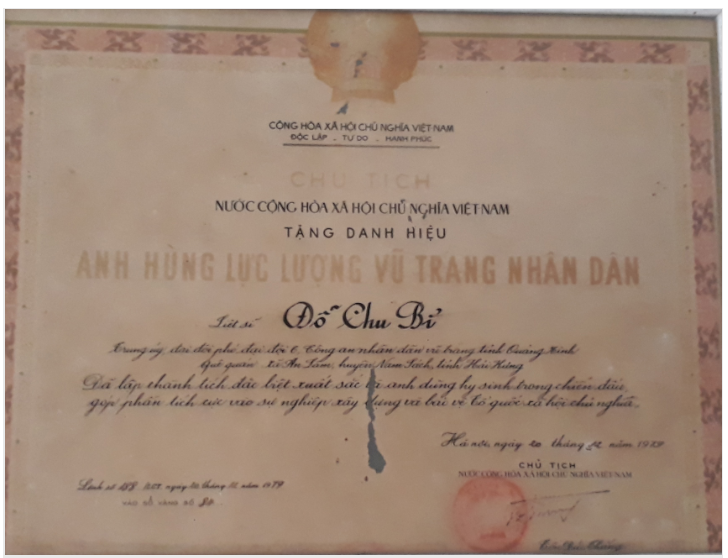
On March 1, 1979, Do Chu Bi directly commanded the A1 checkpoint, a position blocking the front line, 300m from the border, 400m from the Hoanh Mo border post. In such an important position, to occupy the A1 checkpoint, the enemy concentrated all kinds of artillery, firing continuously for 1 hour. As soon as the artillery stopped, 4 enemy battalions rushed forward. Do Chu Bi calmly commanded the squad to use bayonets, grenades, and rifle butts to fight hand-to-hand, pushing the enemy out of the trench, causing them heavy losses. Wounded in the hand and side, he still did not leave the battlefield.
The battle dragged on, becoming more and more fierce, it was raining, the trenches were muddy, he commanded the transfer of wounded and dead soldiers to post A2, continuing to protect post A1. The enemy continuously counterattacked, he steadfastly held on, fought and sacrificed at the front. On December 19, 1979, Do Chu Bi was posthumously awarded the title of Hero of the People's Armed Forces by the President of the Socialist Republic of Vietnam. He sacrificed himself before he could get married...
There are pains only for those who stay behind…
In 2016, the People's Committee of Thua Thien Hue province decided to name a small tree-lined street in Huong So ward Le Minh Truong. Perhaps many people who pass by that street every day do not know his story.
Heroic martyr Le Minh Truong, a soldier of Company 5, People's Armed Police of Lang Son province (now Lang Son border guards), heroically sacrificed his life while protecting Dong Dang fortress, Lang Son on February 17, 1979 when he was only 19 years old and still harbored many aspirations, including the dream of having a small home of his own... His father, Captain Hong Minh Ky (birth name Le Thai) sacrificed his life in Huong Hoa (Quang Tri) during the Route 9 - Khe Sanh campaign on February 16, 1968.
On February 17, 1979, in a fierce and unequal battle to protect Dong Dang fortress, Private First Class Le Minh Truong destroyed 2 tanks and 10 enemy soldiers, along with his comrades, killed hundreds of others and heroically sacrificed himself. He was posthumously awarded the Third Class Military Exploit Medal. On December 19, 1979, Private First Class Le Minh Truong was posthumously awarded the title of Hero of the People's Armed Forces by the State. In 2014, his mother, Mrs. Nong Thi Duyen, was awarded the title of Heroic Vietnamese Mother by the Party and State.
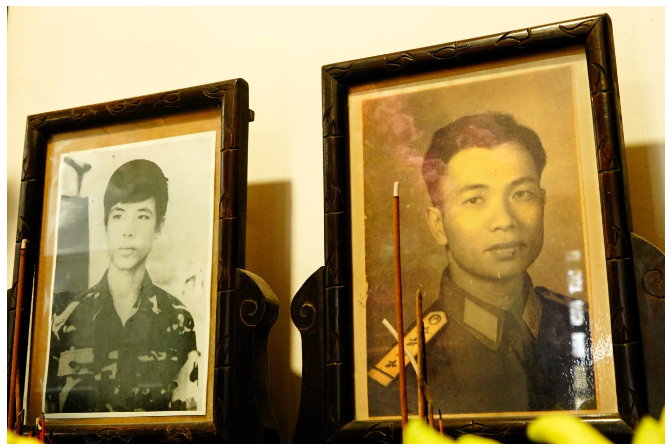
And there are many more roads in people's hearts...
In some martyrs' cemeteries in the Lao Cai border area, there are graves of female youth volunteers who died since February 17, 1979. Most of them were from Ha Nam Ninh (at that time formed by the merger of three provinces Ha Nam, Nam Dinh, Ninh Binh). In 1977 and 1978, Ha Nam Ninh province was a sister province of Hoang Lien Son (established on December 27, 1975 on the basis of the merger of two provinces Lao Cai and Yen Bai) and there were many female youth volunteers from Ha Nam Ninh volunteering to go to the border to carry out the task of economic development associated with the task of protecting the Fatherland's borders.
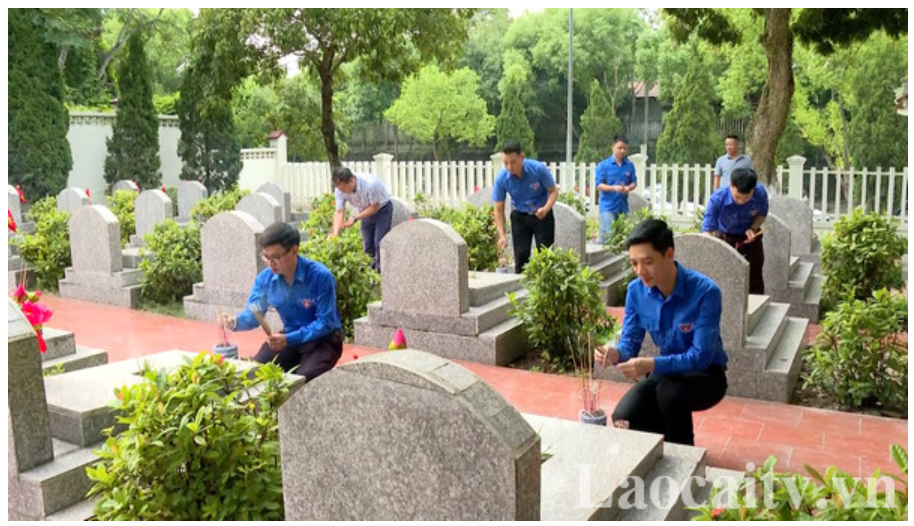
Young generation burns incense to pay tribute to martyrs in Lao Cai city
During the war to protect the sovereignty of the northern border, more than 1,200 youth volunteers from Ha Nam Ninh province were organized into 6 companies to carry out missions in 6 border districts of Hoang Lien Son province. Many female youth volunteers fought bravely and sacrificed their lives at the age of 17 and 18.
There are women who have never known love, there are graves whose identities are still unknown to this day, but their names have become roads in the hearts of the people.
Naming streets after heroes who died in the 1979 border war is the most sincere incense so that our heroes and martyrs will continue to live forever in the hearts of those who remain. So that historical memories will never be forgotten...
TH (according to Vietnamnet)